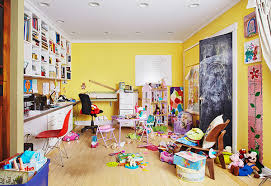LEVEL 3
Please see “HOW TO GET YOUR CHILD TO LISTEN-POSITIVE TALK” for levels one and two.
At this stage, you can give your child information so they understand why you want them to cooperate.
Examples:
-
- “When flowers are stepped on, they die.”
- “When flowers are stepped on, they die.”

-
- “Milk spoils when the refrigerator is left open.” (Actually show them some spoiled food.)
-
- “Wet towels on the bed make the bed wet and uncomfortable to sleep in.”
-
- “Glasses placed on the edge of the table can fall and break.”
-
- “Water on the bathroom floor can leak to first floor.”
-
- “Toys left on the floor can be stepped on and get broken.”
-
- “Toys left outside can be stolen.”
-
- “When your body doesn’t get enough sleep, it has a harder time helping you play the next day.”
Sometimes it is better to just say one word. This is only if they already understand how things work.
So if there is a wet towel on the bed, you would just say “towel”. If there are toys in the door way, you would just say “toys”.
This teaches them to empathize with others and is a building block to emotional intelligence skills.
Examples:
-
- “Grandma will feel sad if her flowers get stepped on.”
-
- “We will feel hungry if we have no milk for breakfast.”
-
- “You might feel annoyed in bed tonight if the sheets are wet.”
With some kids, if you say this and do other things like spend quality time with them, have a schedule, etc., they will listen. If they don’t, go to articles such as “Setting Boundaries”. Don’t repeat the above statements over and over. Once you have said it and they don’t comply, set a kind but firm boundary and move on.
REFERENCES
Faber, A., & Mazlish, E. (1999). How to talk so kids will listen & listen so
kids will talk. Harper Paperbacks.
Shure, M., Digeronimo, T. F., & Aher, J. (2000). Raising a thinking child
workbook: Teaching young children how to resolve everyday conflicts and get
along with others . Champaigne, Illinois: Research Press.



